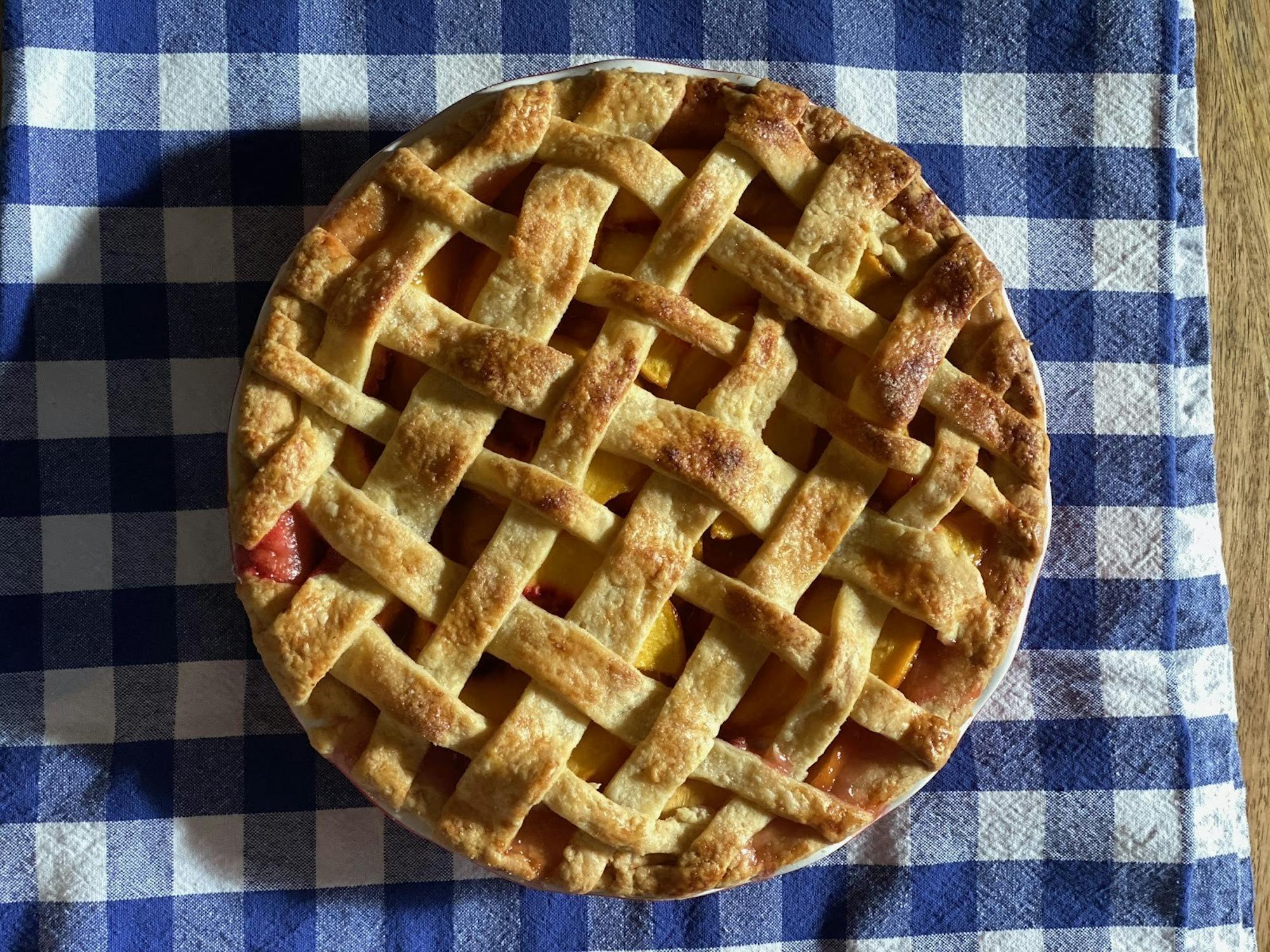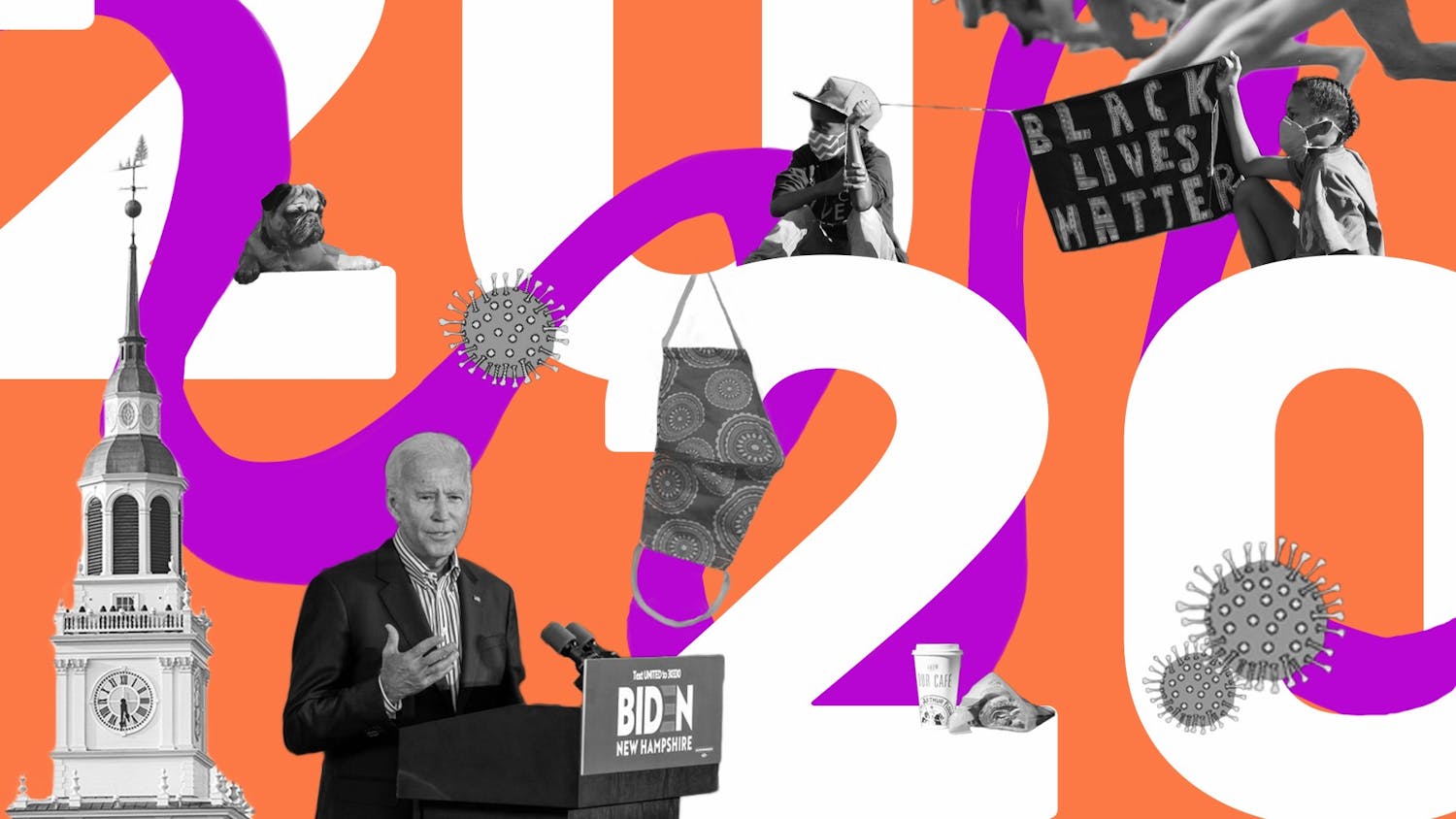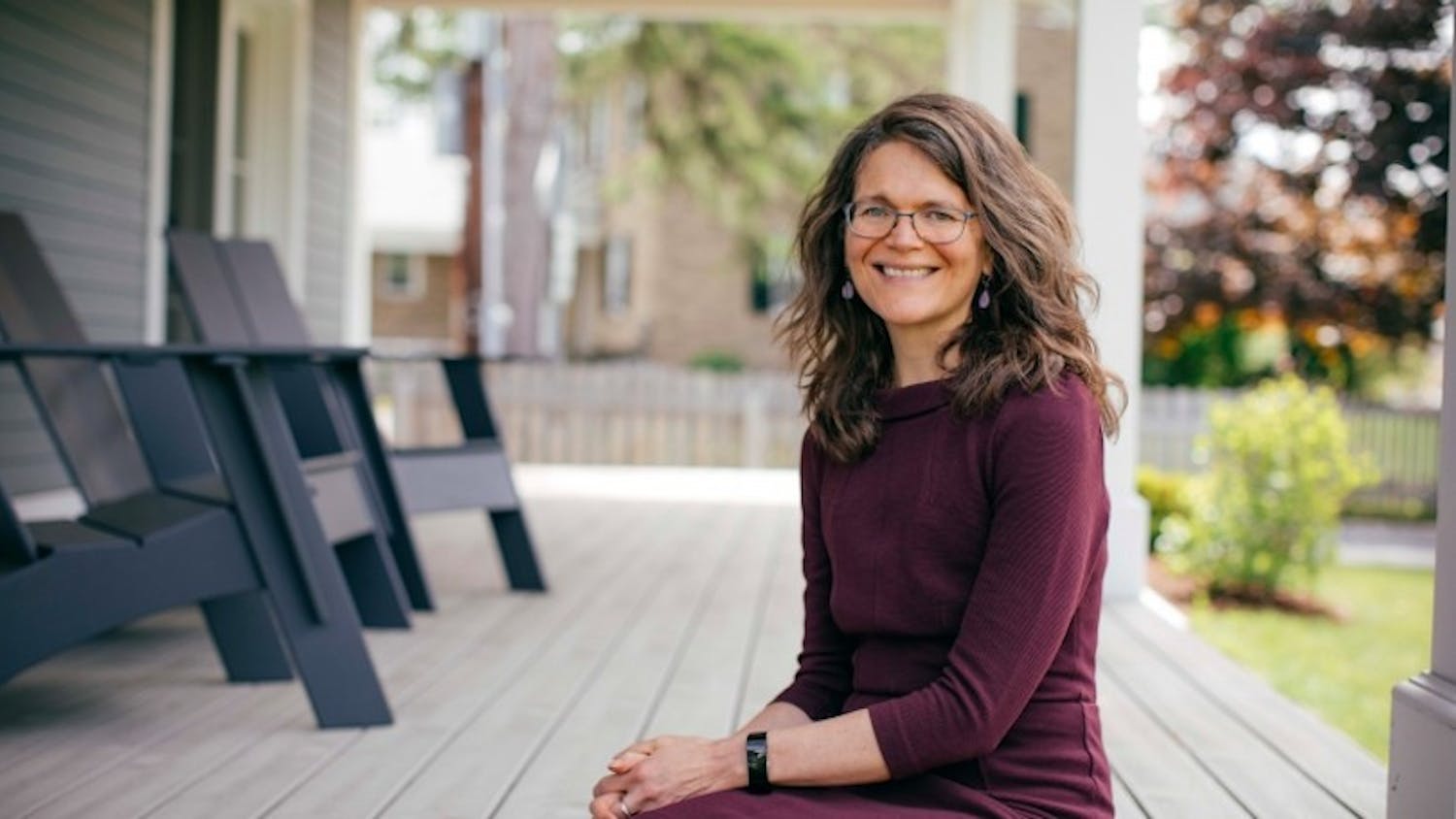Since the COVID-19 pandemic began almost a full year ago, I’ve thought a lot about the future of art. If art is a mode of self-expression, what happens when your sense of self, removed from the places and people that shape it, is rocked? If art is a vessel for our joy, what happens when the sources of joy change? I was afraid that life in lockdown would make us too tired to create things, or that stress and lack of materials would immobilize us even when we wanted to create things. I hoped that making things was such an inherently human act that it would pull us through the wildest of circumstances.
After almost a year of quarantine, I am happy to report that art still exists. There’s even been something of a renaissance among Dartmouth students. From taking on new projects to reconnect with personal goals, to painting with color in bleak times, we’ve existed in a flurry of craft supplies, sheet music and baking flour. This week, I caught up with three Dartmouth students who were willing to share their quarantine creations.
Jazz Beats the Blues
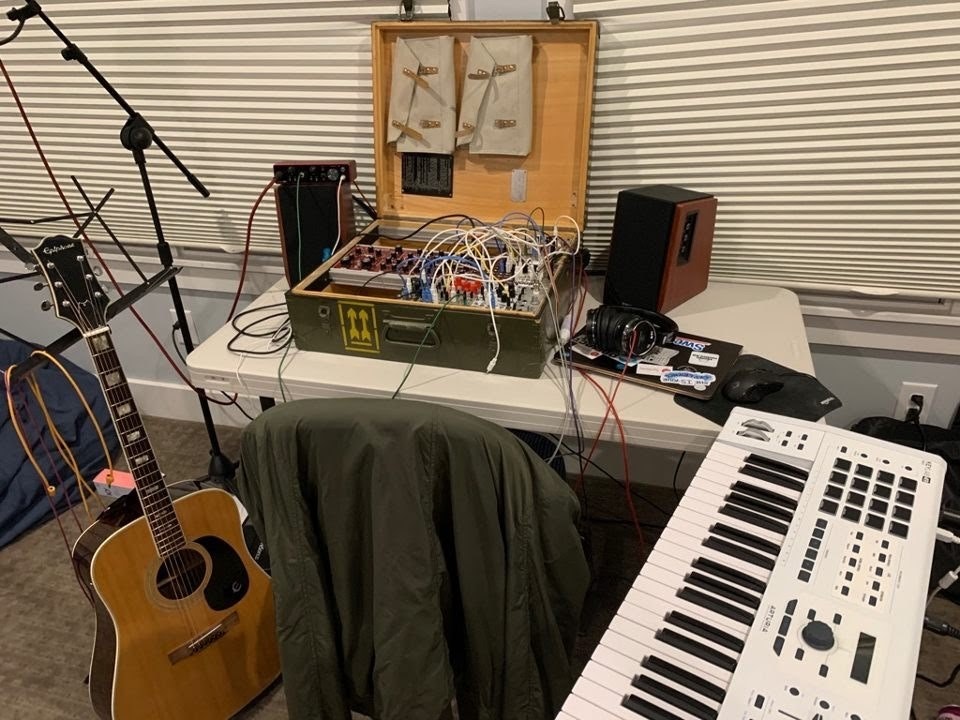
Spending the pandemic in Texas and New York, Ted McManus ’22 took advantage of time off from school to immerse himself in music. Between practicing trombone and piano, picking up the guitar, building a synthesizer from his homemade soldering station and renewing focus on music theory research that he conceptualized in summer 2019, McManus embodies the phrase, “all that jazz.”
McManus usually plays gigs with the Barbary Coast Jazz Ensemble and a free jazz collective on campus, but the pandemic has postponed live performances.
“There’s a rift in my musical life, where I can practice a bunch but I can’t actually perform. I’ve gotten more into seeing what I can do individually, without having to compose and write for groups,” McManus said.
Among McManus’s solo musical adventures are a foray into music production and his music research, for which he has sought out a grant. McManus’s research examines the geometric concepts in Coltrane changes, a harmonic progression sometimes used in jazz, and explores their application in different music systems.
Though McManus enjoys his independent research, his favorite musical pastime is still playing the trombone.
“I think it’s really cool that you can go derive a fundamental major set in 72-tone harmony, and then do algorithmic chords on it. But it sounds like microtones,” McManus said of his synthesizer. “But I can actually play the trombone, and it sounds nice.”
For McManus, the trombone and the piano are a welcome diversion from an increasingly hectic world. Even without any gigs to rehearse for, practicing his instruments as he would during a typical term gives McManus a sense of normalcy, as well as a designated time each day to put aside his worries and focus on jazz instead. He has spent much of quarantine brushing up on jazz standards, staying sharp until he can once again play for audiences.
On Kneading to Rise Up from a Crusty Year

When Grace Turner ’23 learned last spring that the King Arthur Flour cafe in Baker-Berry Library was closing, she knew there would be only one way to reunite with her lost love, the vegan muffin. In tribute to her favorite baked good, Turner braved grocery store lines and pandemic flour shortages to procure ingredients for her own KAF muffins.
Although she didn’t have much baking experience aside from her trademark chocolate cookie recipe, Turner quickly discovered that amid the chaos of COVID-19, the kitchen was a happy place. What started as a single batch of muffins spiraled delightfully out of control, resulting in decorated loaves of bread and double-crust pies with meticulously engineered lattices. Turner even made croissants from scratch, a notoriously difficult task even for experienced bakers.
Turner, who was late to her interview for this story because she had to pull a batch of cinnamon rolls out of the oven, enjoys baking for its solidity in an otherwise upended world.
“I got frustrated with the lack of tangibility in everything being on Zoom. I often felt disconnected from the projects I was working on,” Turner said. “I’m an engineering major, so I like things that I can touch and things that I can build. Baking is a super fulfilling hour-long break from whatever I’m working on … that has something to show for it.”
Turner particularly loves inventing her own recipes by mixing and matching steps from existing ones. Though sparsely stocked dorm kitchens will challenge her baking skills when she returns to campus this winter, Turner is determined to keep things sweet using whatever ingredients life throws at her.
Rehearsing for Opening Night
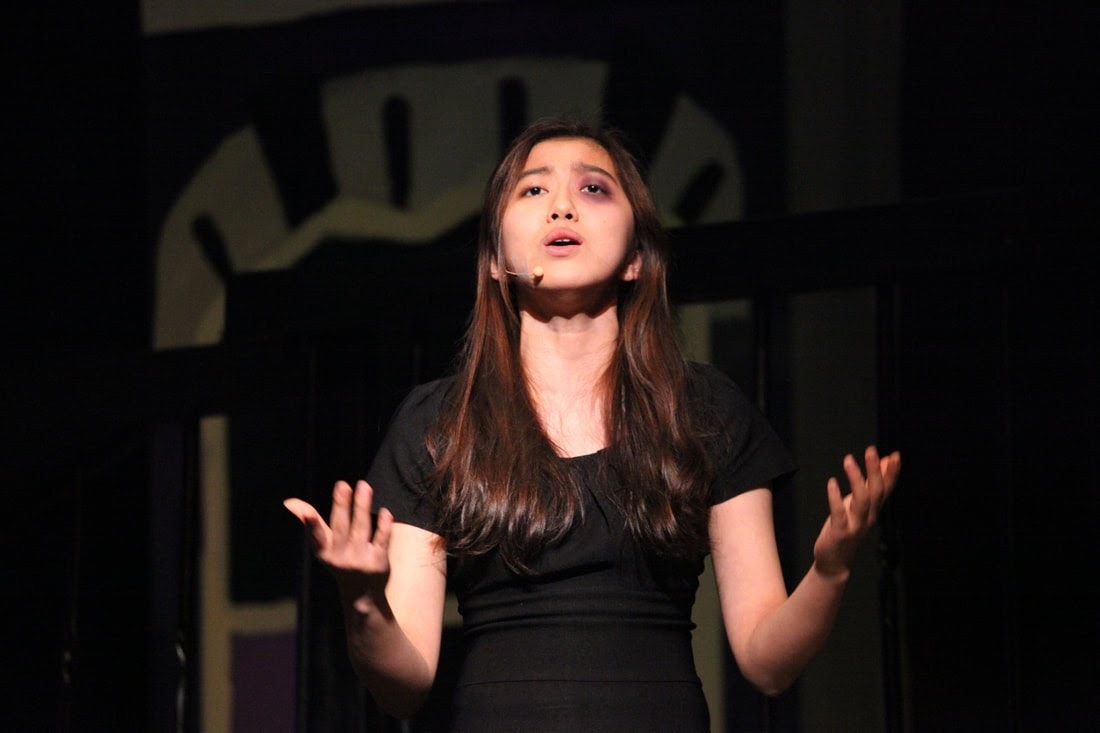
Though the pandemic has left theaters dark, the ghost light is still on for Min Hur ’24. At a time when artists are devastated by theater closures, Hur hasn’t lost hope for the future.
Hur recently transferred to Dartmouth from the American Musical and Dramatic Academy, an arts conservatory in Los Angeles where she studied musical theater. After her first fall term at Dartmouth, conducted remotely from South Korea, Hur spent winter break reconnecting with her artistic side. By making time to study scripts and honing her skills in dance, acting and music classes through an online platform called Broadway Weekends, Hur has maintained theater’s presence in her life through what feels like a very long intermission.
“It’s going to happen the way it’s going to happen,” Hur said of live theater’s eventual return. “I try not to worry and I trust myself. The best thing I can do right now is train and be ready for anything to come.”
Through quarantine, Hur has also been inspired by theatermakers who have innovated ways to share their art over new platforms. For example, a virtual broadcast of “Ratatouille: The TikTok Musical,” a concert pieced together by writers and composers collaborating over TikTok, recently raised nearly $2 million for The Actors Fund, a human services organization that assists people who work in entertainment. No matter how profoundly this year has shaken the theater world, the unshakable passion of artists like Hur promises a future where our stories can thrive again.
As we start the new year with renewed hope that the end of the pandemic is on the horizon, many hope that art will continue to bring us solace. Though our individual creative pursuits often take a backseat to academics during fast-paced terms at Dartmouth, mindfully making time for our hobbies might improve overall well-being and provide stress relief past the pandemic.

